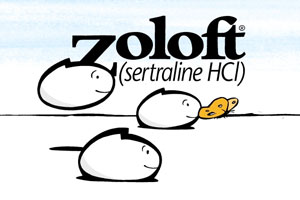28 Feb 2013
Hashish
Marijuana is the drug that most people are familiar with when it comes to cannabis, but another, more potent drug comes from the same plant called cannabis. Hashish is more popular in other parts of the world than in the U.S., but it is here too. Use of hashish carries the same dangers as using marijuana, but amplified. It causes adverse health effects and can lead to addiction.
Read More
27 Feb 2013
Ritalin: Gateway Drug or Safe Prescription?
Ritalin is a commonly prescribed psychotropic medication, most often given to children to treat the symptoms of attention deficit hyperactivity disorder, or ADHD and attention deficit disorder, or ADD. The generic name for Ritalin is methylphenidate and it is also prescribed to treat narcolepsy, a sleeping disorder. A psychotropic medication is one that is prescribed for the treatment of psychiatric disorders and that passes from the bloodstream to the brain to act on the central nervous system. Psychotropic drugs have the potential to cause changes in mood, cognition, behaviors, perception, and consciousness. For this reason, they are often abused, misused, and cause addiction.
Read More
Methylphenidate (Ritalin, Concerta) is a stimulant medication widely used to treat people with ADHD (attention deficit hyperactivity disorder), and also used to treat the sleep disorder called narcolepsy. Cocaine is the common name for an addictive, stimulating illegal drug made from the leaves of the South American coca plant. Despite their differing uses and legal status, methylphenidate and cocaine are chemically similar and produce the same basic effects inside the brain. Although proper methylphenidate use does not trigger addiction to the drug, some medical researchers believe that people who use methylphenidate in childhood have higher risks for developing cocaine addictions in adulthood.
Read More
In recent decades, researchers and mental health experts have made extensive progress in uncovering the basic nature of substance abuse and addiction. In part, their conclusions show that, over time, abuse and addiction affect the body in ways that are highly analogous to the effects of chronic diseases such as heart disease and diabetes. Still, despite these findings, people with abuse- or addiction-related issues are sometimes stereotyped in society as morally weak or somehow mentally deficient. Despite these stereotypes, current evidence shows that people with low IQs don’t have especially high risks for illicit drug use. In fact, high childhood IQ score-not low scores-appear to be associated with increased risks for illicit drug use in adulthood.
Read More
18 Feb 2013
Zoloft in Brief
 Zoloft is the brand name of a compound called sertraline. It is one of a class of antidepressant medications called serotonin-specific reuptake inhibitors (SSRI). The SSRIs are a relatively new group of antidepressants, the first of which was Prozac, approved for use in the United States in 1988. In the early 1990s, several researchers published articles noting that upon administration of these SSRIs, suicidal thoughts, gestures (such as self mutilation or cutting), and even attempts increased. The articles noted that for some patients, suicidal thoughts had not been reported in the past despite the diagnosis of depression, and that in others the intensity of these thoughts or actions greatly increased.
Zoloft is the brand name of a compound called sertraline. It is one of a class of antidepressant medications called serotonin-specific reuptake inhibitors (SSRI). The SSRIs are a relatively new group of antidepressants, the first of which was Prozac, approved for use in the United States in 1988. In the early 1990s, several researchers published articles noting that upon administration of these SSRIs, suicidal thoughts, gestures (such as self mutilation or cutting), and even attempts increased. The articles noted that for some patients, suicidal thoughts had not been reported in the past despite the diagnosis of depression, and that in others the intensity of these thoughts or actions greatly increased.
Read More
Alcohol and all commonly abused drugs alter your experience of reality by altering the levels of chemicals in your brain known as neurotransmitters. Generally speaking, problems with alcoholism and drug addiction begin when your brain gradually adapts to the long-term changes in neurotransmitter levels. In the scientific community, much of the focus on abuse- and addiction-related brain changes has centered on dopamine, a neurotransmitter that plays a key role in the normal function of the brain’s pleasure centers. However, altered levels of another neurotransmitter, called glutamate, also contribute to the onset of addiction by changing the ways in which you learn, make decisions and engage in other basic thought processes.
Read More
Alcohol withdrawal is a condition that occurs when a long-term, heavy drinker stops using alcohol. It inevitably appears in alcoholics who decide to stop drinking and seek alcohol addiction treatment. Depending on factors that include the length of alcohol use and the intensity of alcohol use, the symptoms of withdrawal can range from relatively mild to severe or even life-threatening. Unfortunately, fear of these symptoms can play a significant role in continued drinking and the avoidance of treatment. However, in the vast majority of cases, alcohol withdrawal produces more or less predictable changes in the body, and proper monitoring and medical treatment can help a recovering drinker make it through this process.
Read More
15 Feb 2013
Side Effects of Buprenorphine
Most any medication intended for healing may induce some harm or discomfort. All medication prescriptions include information on side effects or adverse reactions to the medication. Some people may have no reactions while others have multiple reactions. Whether one experiences these effects depends on multiple factors including dosage and the person’s tolerance.


